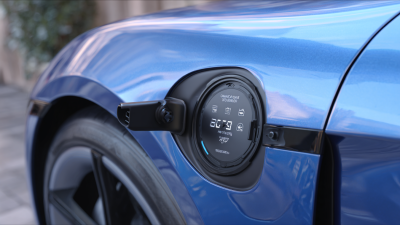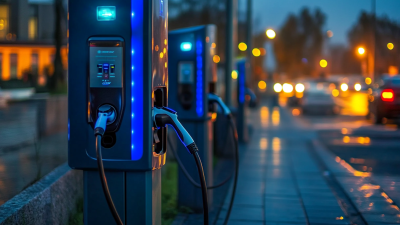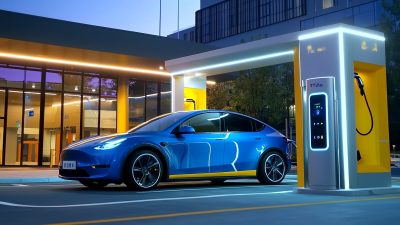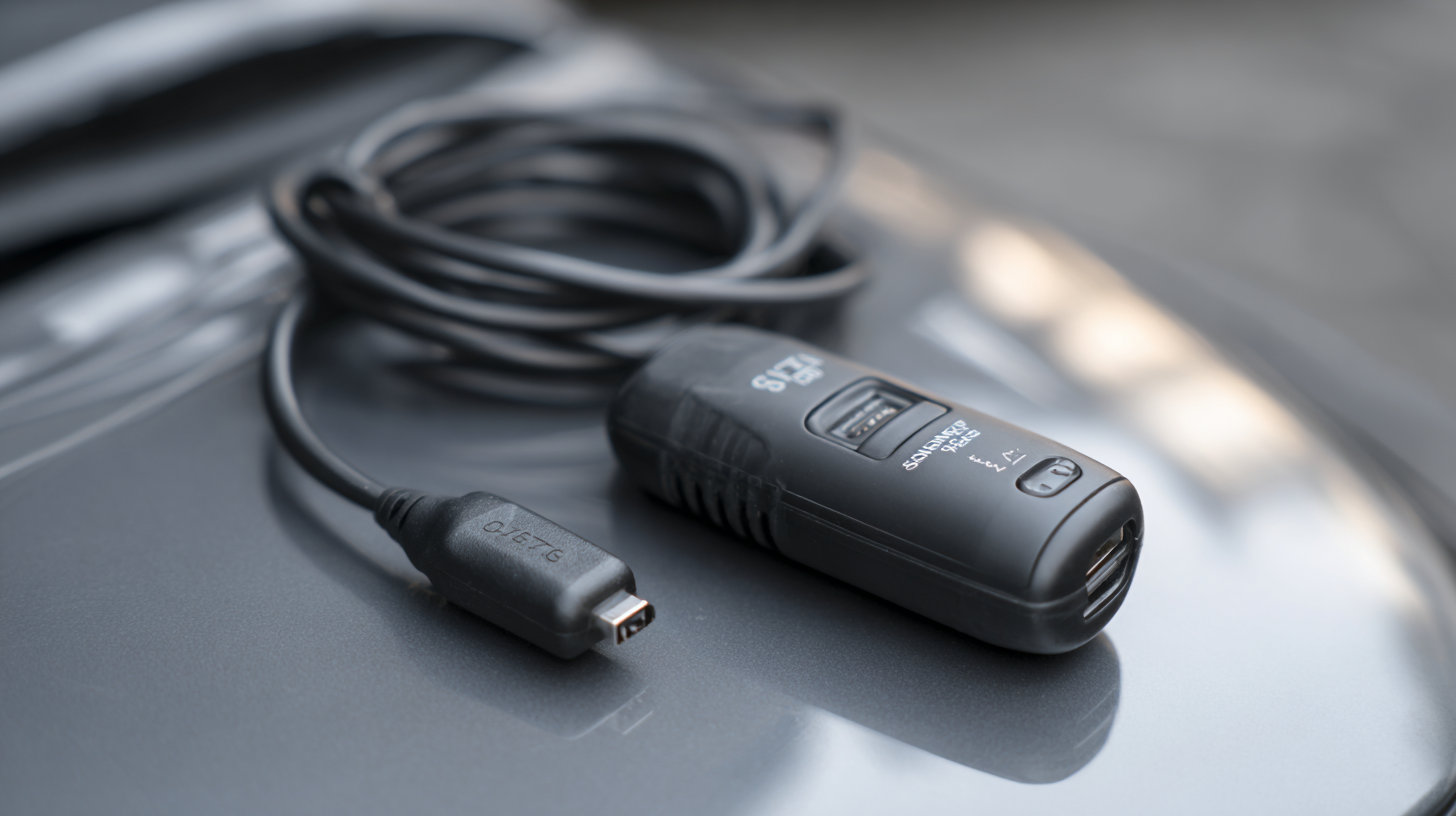 As electric vehicles (EVs) continue to gain popularity, the demand for efficient charging solutions has never been more critical. Among the options available to EV owners, the Portable Electric Vehicle Charger stands out due to its convenience and versatility. Portable chargers allow drivers to charge their vehicles on the go, offering a practical solution for those who may not have access to traditional charging infrastructure. This adaptability is particularly important as more people embrace electric vehicles in 2025 and beyond.
As electric vehicles (EVs) continue to gain popularity, the demand for efficient charging solutions has never been more critical. Among the options available to EV owners, the Portable Electric Vehicle Charger stands out due to its convenience and versatility. Portable chargers allow drivers to charge their vehicles on the go, offering a practical solution for those who may not have access to traditional charging infrastructure. This adaptability is particularly important as more people embrace electric vehicles in 2025 and beyond.
In this guide, we’ll explore the 10 best portable electric vehicle chargers that meet the modern driver’s needs. Whether you’re looking for speed, compactness, or compatibility with various EV models, we will cover options that ensure you can maintain your electric vehicle efficiently, regardless of where your journeys take you. Join us as we delve into the features, benefits, and specifications of these top portable chargers, equipping you with the knowledge needed to make an informed choice that enhances your electric vehicle experience.
When choosing a portable electric vehicle (EV) charger, various features can greatly enhance the charging experience. One of the most important considerations is the charger’s power output, typically measured in kilowatts (kW). Reports indicate that Level 2 chargers, which operate between 3.7 kW and 22 kW, can significantly reduce charging time compared to Standard Level 1 chargers, which provide only 1.2 kW. According to a study by the Department of Energy, using a Level 2 charger can cut down charging times to about 4-6 hours for most electric vehicles, making them a preferred choice for both home and on-the-go charging.
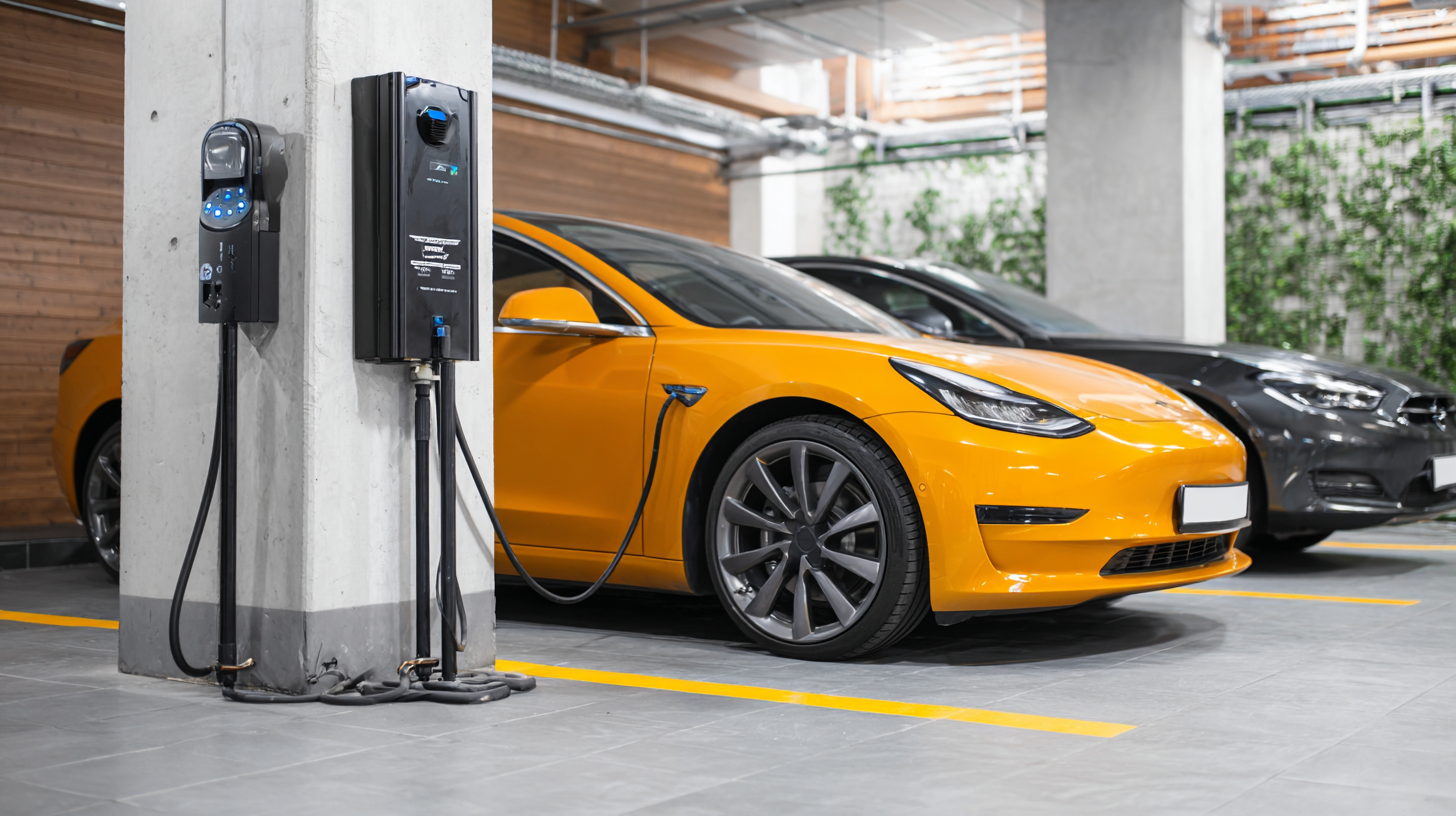
Another critical feature to ponder is the compatibility with different EV models. A versatile charger with multiple connectors can cater to various brands, which is essential for households with different vehicles. The Electric Power Research Institute highlights that 80% of consumers seek charger compatibility with their current or future electric vehicles, emphasizing the demand for universal charging solutions. Additionally, factors such as portability, ease of use, and built-in safety features (like overcurrent protection) must not be overlooked, as these elements ensure convenience and safety in diverse charging scenarios.
The landscape of portable electric vehicle (EV) chargers is rapidly evolving, with projections suggesting that the U.S. electric vehicle charger manufacturing market will soar from $761.7 million in 2025 to an impressive $3,494.5 million by 2032, reflecting a remarkable CAGR of 24.3%. With this growth, the need for fast and efficient charging solutions has never been more critical, prompting a comparative analysis of the top portable EV chargers available in 2025.
Understanding the nuances between various charging standards, such as NACS and CCS, will be crucial for consumers as they navigate their options. Whether you’re looking for a lightweight charger for occasional road trips or a heavy-duty option for daily use, the advancements in technology mean that versatility and performance are at your fingertips.
Tips: When selecting a portable EV charger, consider the charging speed, compatibility with your vehicle, and weight for easy transport. Also, keep up with the developing EV charger networks, as options like Tesla's Supercharger provide faster charging solutions and enhance your travel experience significantly. Always check for updates in chargers' technological capabilities to ensure your investment remains relevant.
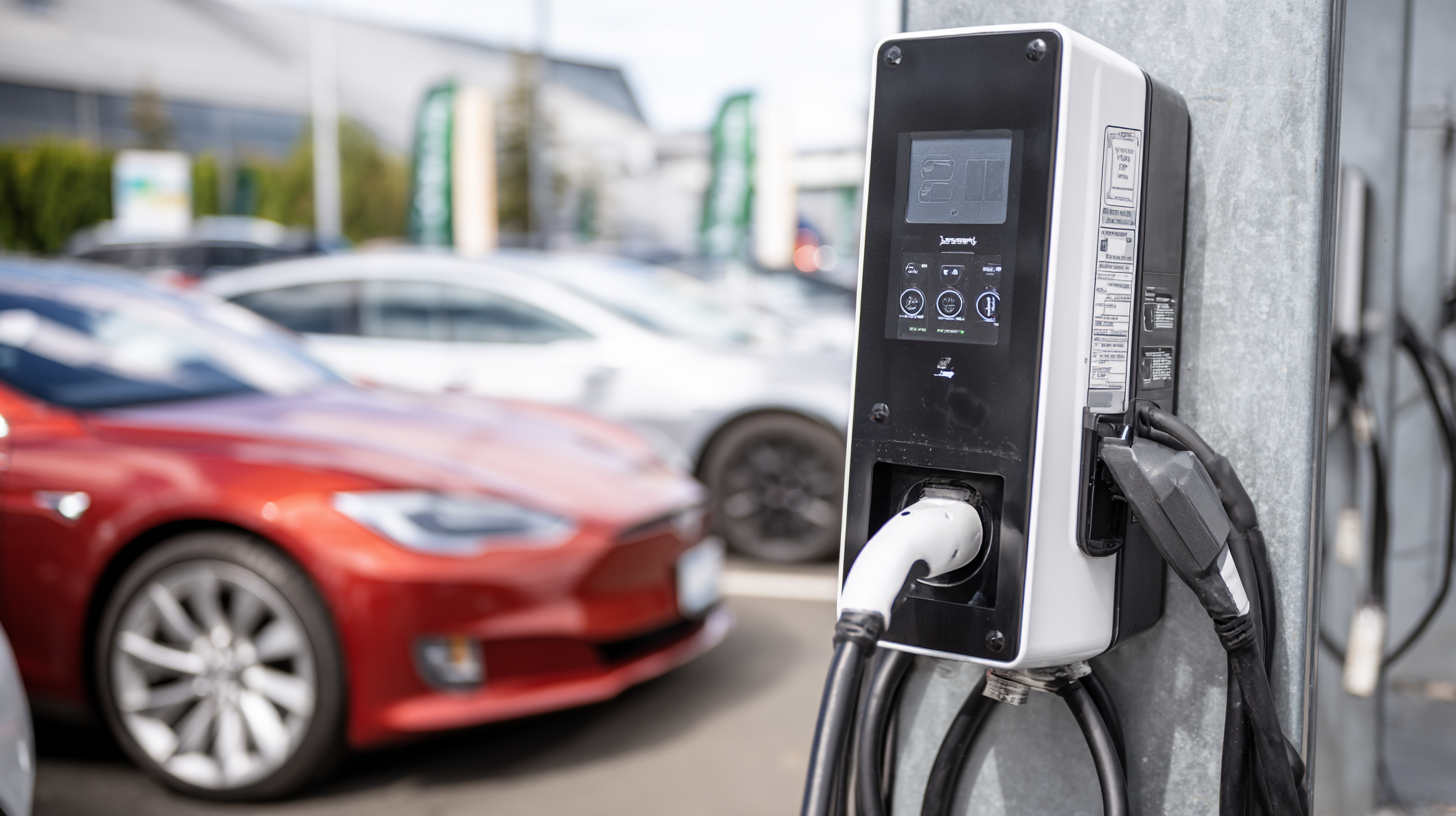
When it comes to powering up electric vehicles on the go, charging speed is of paramount importance. Recent industry reports indicate that the average Level 2 charger provides about 20 to 30 miles of range per hour of charging, catering to the needs of most commuters. However, portable electric vehicle (EV) chargers have evolved significantly and can provide much faster charging solutions. High-caliber models, capable of delivering up to 40 amps, can add approximately 30 to 60 miles of range in just one hour, making them ideal for those in a hurry.
Moreover, the emergence of DC fast charging technology has revolutionized the charging landscape. Some of the top portable chargers can support fast charging, equipping users with the ability to gain 80% charge in under 30 minutes. According to a study by the U.S. Department of Energy, fast charging stations are gaining traction, with a 20% increase in installations year-over-year. This advancements highlight that not only do portable chargers offer flexibility, but they also embrace speedier charging solutions to meet rising consumer demands.
This chart illustrates the charging speeds of the ten best portable electric vehicle chargers, showing how quickly each model can charge a vehicle. The speeds are measured in kilowatts (kW), indicating the efficiency of each charging solution.
User experiences reveal crucial insights when it comes to selecting the best portable electric vehicle (EV) chargers. Many users appreciate the convenience of being able to charge their vehicles on the go, particularly those who frequently travel long distances. Feedback consistently highlights the importance of charging speed and efficiency; a charger that can provide a substantial range boost in a short amount of time is often top of the list for many users. For example, some customers rave about chargers that can add over 30 miles of range in just one hour, making them essential for road trips or unexpected detours.
Real-life testimonials also shed light on usability and durability. Users have noted that the best portable chargers are not only compact and lightweight but also rugged enough to handle various weather conditions and rough handling. Features such as built-in safety mechanisms, user-friendly interfaces, and multiple charging modes add significant value. Positive experiences often feature easy setup and compatibility across various EV models. Overall, user feedback plays a vital role in identifying the most reliable and effective portable chargers available in today’s market.
When considering the best portable electric vehicle (EV) chargers for 2025, it is crucial to evaluate the balance between cost and performance. Recent data from the EV Charging Infrastructure Report indicates that the average price range for high-quality portable chargers has grown significantly, now fluctuating between $300 and $600. This increase reflects advancements in technology, such as faster charging speeds and improved battery management systems, which enhance the efficiency of these devices.
Performance metrics play a pivotal role in justifying this cost. According to the latest findings from McKinsey & Company, the optimal charging output for portable chargers is shifting toward 22 kW, reducing charging times by over 50% compared to older models. Consumers can expect a return on investment through reduced downtime and increased travel flexibility, which is especially appealing as EV adoption rates continue to climb—projected to reach 50% of new vehicle sales by 2030. Therefore, selecting the right charger involves not just a monetary investment, but a strategic choice that can significantly enhance the user experience and overall satisfaction with electric vehicle ownership.
| Model | Charging Speed (kW) | Input Voltage (V) | Weight (lbs) | Price ($) | Performance Rating (1-10) |
|---|---|---|---|---|---|
| Model A | 7.2 | 240 | 4.5 | 499 | 9 |
| Model B | 9.6 | 240 | 5.2 | 599 | 8 |
| Model C | 3.7 | 120 | 3.0 | 299 | 7 |
| Model D | 11.0 | 480 | 6.0 | 799 | 10 |
| Model E | 7.2 | 240 | 4.0 | 399 | 8 |
